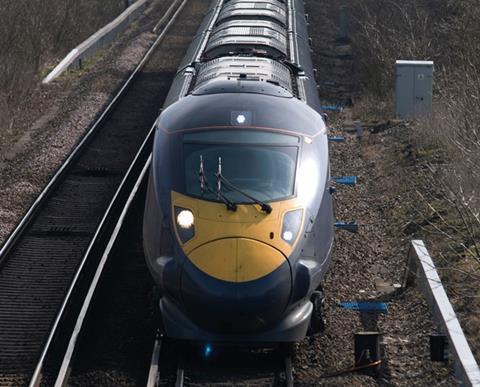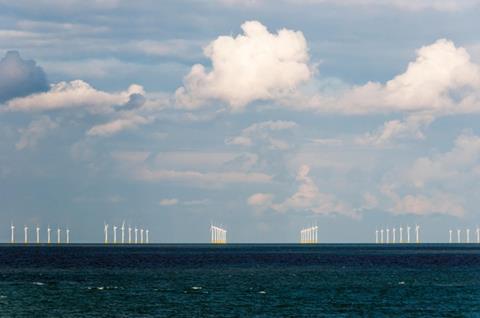When Philip Hammond announced last month that UK Guarantees would include construction, many viewed it as a lifeline for infrastructure projects unlikely to have access to funding from the European Investment Bank after Brexit. But will this replacement work?

One priority from last month’s Queen’s Speech that has taken some commentators by surprise was a bill to help build space ports. The new legislation is designed to create homegrown infrastructure for the nascent satellite launch business. David Leam, director of infrastructure at the not-for profit organisation London First, is a little mystified by the government’s decision to focus on the final frontier: “I’m not sure whether I would be talking to people about going into space before I was able to reassure them that I’ve got to grips with crowding on local train services.”
However, maintaining momentum on infrastructure back on Earth was clearly also on ministers’ minds when they were putting together the government’s legislative programme, which also included a bill to support the uptake of electric vehicles and another to smooth the way for the next phase of HS2.
I’m not sure whether I would be talking to people about going into space before I was able to reassure them I’ve got to grips with crowding on local train services
David Leam, London First
Perhaps more significant for the infrastructure market overall, though, was chancellor of the exchequer Philip Hammond’s less well publicised Mansion House speech the day before. In this, he announced an expansion of government support for infrastructure capital funding in the UK.
He said the government will “broaden the range” of the UK Guarantees Scheme, under which the government underwrites lending to infrastructure projects. The announcement means that lenders to infrastructure projects, like wind farms and interconnectors, will be offered construction-only guarantees for the first time.
This announcement - which reinvigorates the UK Guarantees scheme launched by the then chancellor George Osborne in 2012 - comes at a crucial time for infrastructure finance which is likely to be hit by the loss of access to funding from the European Investment Bank (EIB), post-Brexit. The EIB awards about 90% of its loans to projects located in its member states, which are the bank’s shareholders.

This loss of funding matters for construction because the EIB has become an important source of support for infrastructure schemes, as can be proved by a glance at the list of projects it has helped to bankroll. Hospitals, schools, roads and tram links are among the wide range of projects supported by the EIB, which loaned £6.9bn to the UK last year alone. Nearly half (47%) of the EIB’s funding was earmarked for infrastructure projects. And its remit has widened to embrace housing projects. The Peabody Trust is negotiating support for its ambitious plans to regenerate Thamesmead Town in south-east London.
It is hardly surprising, therefore, that industry experts see the loss of EIB funding as a big blow to construction. They are now looking to the UK government to provide something in its place and so a key question will be: are UK Guarantees an option and if so will they be up to the job? The concern is that the scheme has not had a huge success since its launch and if it is to drive the next generation of big infrastructure projects it needs a bigger commitment from the Treasury than it has received in the past. Others in the industry do not believe that exiting the EU necessarily means the UK will also have to lose membership of the EIB, and even if it did there are optimists who believe there is an appetite from the private sector to invest in infrastructure.
Here we consider the prospects for major UK infrastructure projects and how they could best be funded as the country prepares to exit the EU led by a weakened, minority government.
Why the European Investment Bank matters
The EIB is important because it can lend at interest rates that are up to 1% lower than those on offer in the private market. Often, the first to step into projects, the EIB’s intervention has reduced the risks for other investors.Alexander Jan, director of city economics at Arup, says: “If the EIB backs a project, it tends to have a reassuring effect on how other banks look at it.
“It’s more than a pure cost of capital play and has the effect of enhancing credit quality because other banks will be more comfortable, which, in turn, reduces the cost of capital.”
Munir Hassan, partner and head of clean energy at CMS Cameron McKenna, says that EIB funding was the “cornerstone” for the early wave of offshore wind-farm projects. He adds: “The importance of the EIB diminishes as any particular technology or investment type matures and lenders become more comfortable with it.”

Arup’s Jan is certain that losing access to the EIB can only be seen as a blow to construction: “It would be a tragedy if we lose access to the EIB, but it looks like that’s what’s going to happen. The Treasury knows this is going to be a real setback for UK infrastructure.”
If the EIB backs a project, it tends to have a reassuring effect on how the other banks look at it
Alexander Jan, Arup
This point appears to be backed up by the fact that chancellor Hammond said in the Mansion House speech that he was in talks with the EIB to ensure that UK businesses and projects continue to benefit from its funding as long as the UK is a member of the EU.
The much-discussed HS3 line, which would upgrade the rail links between the north of England’s major cities, is just the kind of project that would have been queuing up at the EIB’s door when it needed funding. According to John Cridland, chair of Transport for the North, which has the task of spearheading the project, “in the north, where we have big ambitions for the northern powerhouse and infrastructure transformation, there is unlikely to be enough money for what we want to do”.
To get a project like HS3 off the ground will need some form of public-private partnership, although he says a lack of access to EIB funding is “not a showstopper”. It depends on what emerges in the EIB’s place though, he says. “What business is looking for is to have range of tools available. Anything that gives a wider range of tools for putting together quite complicated financial deals is welcome.”

UK Guarantees
One of those tools could be the UK Guarantees, which Cridland had a hand in developing when he was director-general of the CBI. The impetus for the scheme came when the banks retreated from involvement in project finance in the aftermath of the financial crisis. Cridland says: “There were significant capital constraints on banks and the CBI looked at what could be done to unblock those. Banks needed to be in and out of the high-risk end of projects earlier.”
Other potential sources of capital existed but were more risk-averse, leading to the establishment of UK Guarantees. “Alternative sources of capital were less risk-taking and needed the government to underwrite projects enabling insurance companies and pension funds to invest themselves in high-risk projects,” says Cridland.
However, UK Guarantees has proved to be less of a game changer than hoped when it was set up five years ago. Around £1.8bn of loans have been underwritten, compared with the £40bn provided for by the Treasury when the initiative was set up. Just nine projects have been provided with guarantees, including the Thames Tideway Tunnel and the Mersey Gateway bridge.

One senior infrastructure source says there has been limited support for the scheme in the Treasury because of the belief that it crowds out private-sector investment and should only be used when there has been a clear market failure. One of the perceived flaws of the original scheme was the absence of construction-only guarantees, which would underwrite the riskiest stage of projects when the likes of pension funds and insurance companies are least likely to stump up cash.
Arup’s Jan believes that Hammond’s move to allow guarantees for just the construction phase could provide reassurance for the market. He says: “It deals with the eventual loss of the EIB as a party that strengthens balance sheets and credit-worthiness. Construction guarantees are going to be helpful if we have something that is technically complicated and difficult to deliver.
“It’s quite a nifty way of providing financial support without the government adding a huge liability to the books.”
Richard Threlfall, head of infrastructure, building and construction at KPMG, welcomes the announcement that construction guarantees are now on the table, partly because it shows that Hammond is focused on the potential loss of EIB investment into UK infrastructure. But he is keen to see the colour of the Treasury’s money.
“There must be a question mark over whether the government is committed to supporting a similar value of schemes with construction guarantees, especially given the low level of actual application of the UK Guarantee programme to date,” he says.
“The market will be keen to understand quickly what is envisaged, and whether the chancellor’s enthusiasm translates into a significant number of projects being supported.”
And Threlfall is worried that the government is giving up too easily on membership of the EIB. He says: “The government is jumping too readily to the conclusion that the UK cannot, or should not, remain a member of the EIB. Multilateral banks exist across the world to support investment in particular regions. Membership of the EIB should not be seen as inevitably linked to membership of the EU.”
Other opportunities
A lack of funds is no longer the major obstacle getting projects off the ground, according to Mike Weston, chief executive of Pensions Infrastructure Platform, which has so far channelled around £2m worth of final-salary retirement savings into new projects.
He argues that the climate for financing projects is healthier than it was five years ago when UK Guarantees was set up. “Most projects don’t have trouble getting funding because there is a supply of capital in the market place,” he says, referring to how pension funds and insurance companies, like Allianz and Legal & General, have been pushed into more risky investments than their traditional safe havens in the bond markets.
The main problem now, Weston argues, is a shortage of UK projects in which to invest due to political bottlenecks. As an example of these delays, he points to the PF2 health private finance scheme, on which he was expecting an announcement in the spring.

Lord Adonis, chair of the National Infrastructure Commission, urged the weakened Conservative government last month not to be blown off course on the big projects currently in the pipeline, like the third runway at Heathrow, which faces one more parliamentary vote before it is finally approved, potentially, later this year as was due to have happened by the end of July under the original timetable.
The Queens’ Speech announcement contained a bill allowing the extension of HS2. Cridland is relieved that the first leg of phase 2, the HS2 extension from the West Midlands to the spot south of Crewe, where the line will fork in two, made it into the government’s legislative programme, now locked down until 2019. “HS2 was mission-critical,” says Cridland. “The bill had to be in this session to keep momentum up.”
If the EIB backs a project, it tends to have a reassuring effect on how the other banks look at it
Alexander Jan, Arup
Other projects, though, are not sufficiently advanced to require parliamentary approval. Momentum has ebbed over the past year on Crossrail 2, which is designed to upgrade connections between north-east and south-west London. Finding a way to fund the £30bn project is the biggest headache, but London First’s Leam is “optimistic” that it can be achieved. Despite the lack of a reference to Crossrail 2 in the recent Budget, he says he is hearing “encouraging sounds” from the Department for Transport about the project.
“Everyone is stressing that no-one is trying to kill this project,” he says, and he urges the government to get Transport for London to consult on the revised route for the scheme by no later than the end of this year. If that happened, while work goes on in the background to sort out the project’s funding, a bill could be tabled in the next session of parliament, enabling approval by 2020. He says: “If we can get that route consultation unblocked and do those other bits of work, I am relatively optimistic, but we need to get things moving.”
However the danger is that the government, unable to command a majority in the House of Commons and consumed by Brexit, will be unable to make the big calls on future infrastructure, reducing the investment opportunities, whatever the “son of EIB” looks like.




























No comments yet